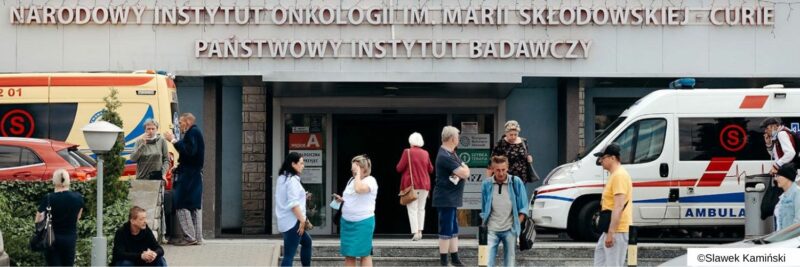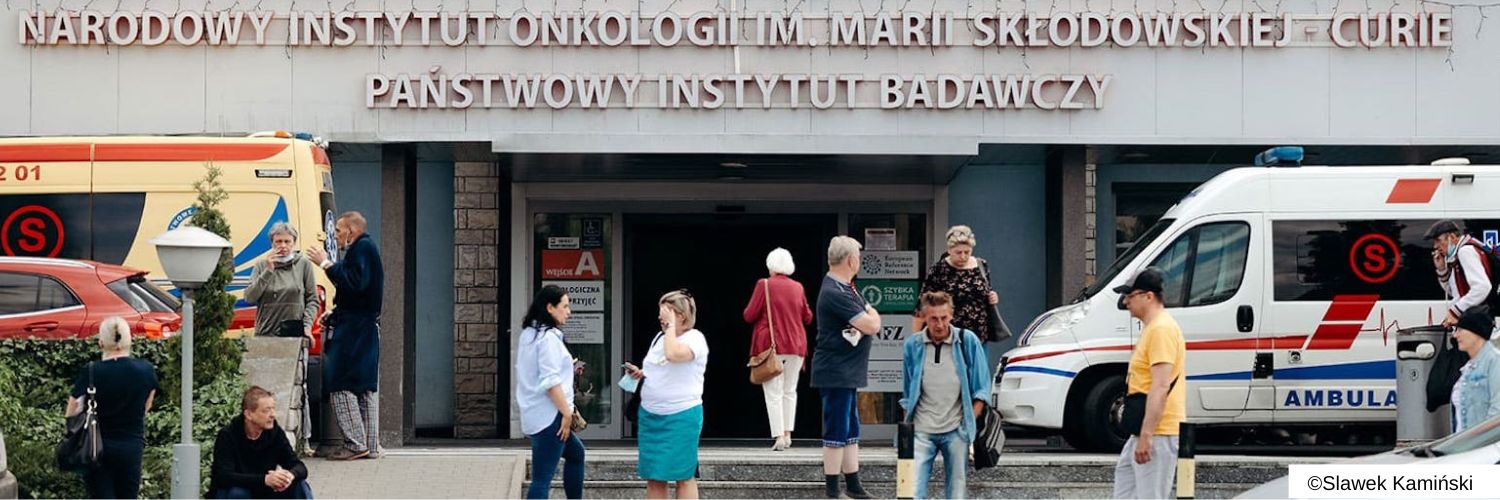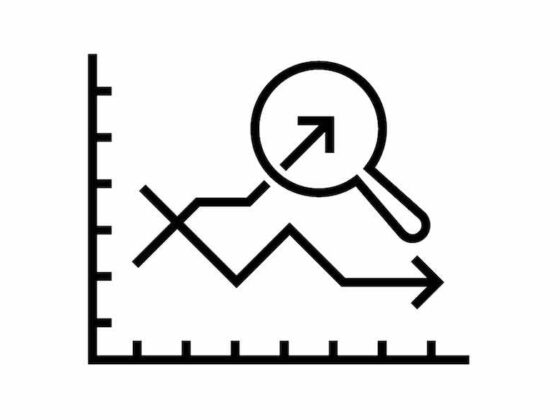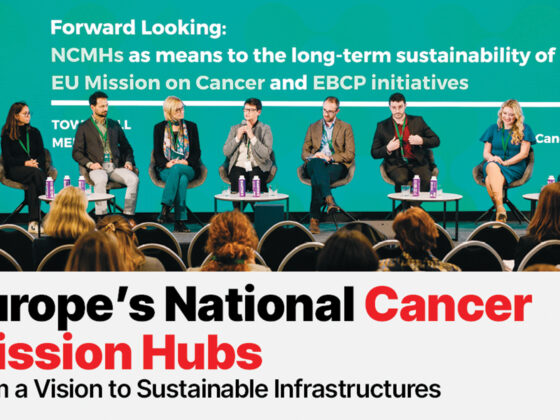February 24, 2022. Julia, a lawyer living near Kiev, is counting down the days until her last chemo. After which she will still face surgery and radiation therapy on her way to recovering from breast cancer. Before dawn, she wakes to the sound of monstrous rumbling. It’s Russian missiles exploding near her home.
“When the war happened, hospitals in Ukraine closed. I didn’t know if I would receive medicine at all. After some time, which seemed a very long time to me as a patient, the hospitals opened again, but there was a huge shortage of medicines.”
Julia faced the prospect of traveling to another city, many kilometres, away
to get her medicine, but this was almost impossible, as she lived right next to what was then the front line. “There was a moment when I wondered if I would even make it to the hospital,” she recalls. She found a drug available for purchase and decided to buy it, but it was very expensive. That’s when Julia, a mother of two, opted to continue treatment in Poland. A friend living in Wrocław came to her aid. She arranged the first medical appointment for March 20.
The hardest time was at the start
On the Polish side of the border advocacy organisations mounted a rapid response. “It was simply ‘call to action’” ‒ recalls Ewelina Puszkin, vice-president of the OmeaLife Foundation, a group founded in 2018 and focused on supporting and advocating for young women with breast cancer. “We posted on Facebook that we were willing to help patients from Ukraine. It quickly spread on social media and on Telegram. We were flooded with emails and phone calls.”
At this early point in the war, large numbers of Ukrainian cancer patients, at various stages of disease and treatment, needed help, but proper systems had not yet been established. It was therefore up to advocacy groups to do what they could, as Aleksandra Ciompała, of the Alivia Foundation ‒ an advocacy group set up in 2010, “to help cancer patients fight for their lives” ‒ recalls. “Two patients needed urgent transport ‒ a child and an elderly person. People spontaneously got together, and managed to organise everything in 24 hours.”
A voice of reassurance
Natalia Ukhach, a Ukrainian living in Gdansk, Poland, was working in the commercial sector when the war started, and had no involvement with healthcare. Since April, supporting patients has become her daily routine. Ukhach is the woman who answers the phone at the hotline set up by the OmeaLife Foundation.
“The patients are stressed by the war and the disease itself,” says Ukhach. “They are terrified of how they will cope. My first task is to calm the patient down. I help arrange paperwork later.” She has already helped almost 200 patients.
Conversations often follow a similar pattern. “First there is a request for help and concern about whether someone in Poland will help or not. Later there are questions about whether it will be for free or for a fee, how to get treatment. My job is to provide information and show the path.”
“They are terrified of how they will cope. My first task is to calm the patient down. I help arrange paperwork later”
To be treated in Poland on an equal footing with Polish patients, Ukrainians must apply to a municipality office for a PESEL number (Polish acronym for Universal Electronic System for Registration of the Population). A law adopted by the parliament in March 2022 gives Ukrainians the right to the same healthcare as Poles, including the same cancer care, with two small exceptions ‒ spa treatment and access to treatment abroad paid for by the Polish National Health Fund.
In the four months between the start of the Russian aggression and the end of June 2022, 3,500 Ukrainian citizens have received oncological treatment in Poland, the Polish National Health Fund reports. Of these, 2900 are adults and 669 are children.
Challenges in the consultation room
At the peak of arrivals of new patients, doctors at major cancer hospitals were admitting several Ukrainian patients a day. Accessing the precise information about the disease and establishing good communication with the patient ‒ both so vital in cancer care ‒ has proved widely challenging.
“Due to the language barrier, it is very difficult to conduct a medical interview,” says Piotr Sobiczewski, a gynaecologic oncologist at the Maria Skłodowska-Curie National Research Institute of Oncology in Warsaw. “We act as we can. Sometimes we can count on the help of cleaning ladies of Ukrainian origin. But this is not a satisfactory solution, because the medical vocabulary is very different from the everyday one.”
To ease the communications problems, patients may bring along a friend or other compatriot who can speak Polish. Natalia Ukhach often helps out as translator as part of her work volunteering with OmeaLife Foundation.
“Here locally, in Gdansk, I simply go with the patient to the doctor and enter the office. If the patient is being treated in another city ‒ in Warsaw, Krakow, or Poznan ‒ the patient calls me during their doctor’s consultation, turns on the hands-free system on the phone, and I translate over the phone. That’s how the consultation goes.”
“I have to rely on the patients’ words and, based on that, infer what type of cancer they had and how to continue treatment”
Another challenge is the lack of medical records for people who had to leave their homes in a hurry, which can introduce a lot of uncertainty, as Katarzyna Pogoda, a clinical oncologist at the Maria Skłodowska-Curie National Research Institute of Oncology in Warsaw, explains.
“Some of the patients have literally no medical records. Even basic information, such as identifying tumour receptors, is missing. If a patient is already undergoing treatment, after surgery, I have no way to re-examine this. Therefore, I have to rely on the patients’ words and, based on that, infer what type of cancer they had and how to continue treatment. This is often a very big challenge.”
Some patients come to the office with nothing but their own personal notes. They have written up by hand their understanding of what they have been sick with and what treatment they have undergone so far.
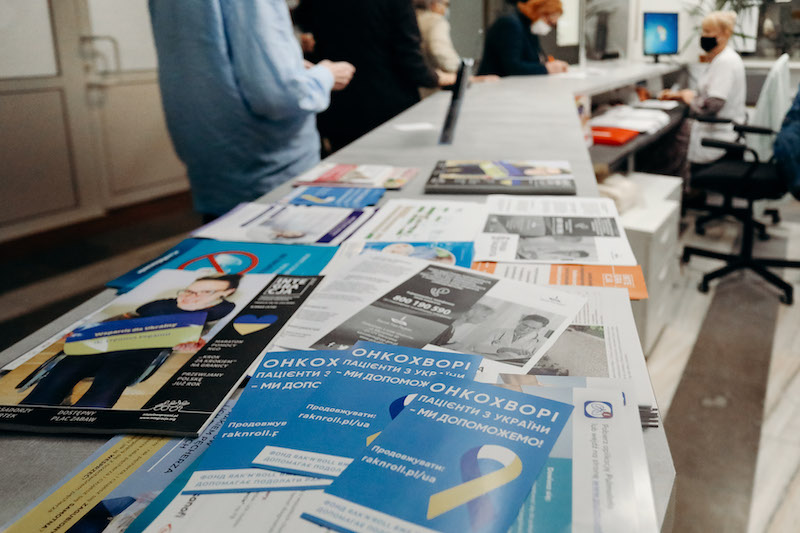
©Slawek Kamiński
“Some patients are not fully aware of what treatment they had, they twist the names of the drugs, and these are serious matters, because we use harsh treatments – radiation therapy, chemotherapy, surgery. Their effects are often irreversible,” – says Sobiczewski.
Even if the documentation is relatively complete, says Pogoda, the quality of the translation may not be fit for purpose. “Sometimes medical records are translated through online tools. I cannot make therapeutic decisions on this basis.”
Doctors also point out differences in treatment schedules used. “At first I thought I had misunderstood the words of the patients. Later it turned out that they were treated in a non-standard way. The regimens differed from the standards we use. We have to tailor treatment for each patient,” says Joanna Kufel-Grabowska, an oncologist at University Hospital of H. Święcicki in Poznan.
“It was one of the most difficult choices of my life. It was very unsafe to return to Ukraine. But I couldn’t imagine my life without a breast”
Can also happen that the treatments proposed by Polish doctors are not the same as those that had been offered in the Ukraine. Julia had opted to have breast-conserving surgery in Ukraine, but in Poland she was only offered a full mastectomy. She therefore decided to return to her country, just for the surgery.
“It was one of the most difficult choices of my life. It was very unsafe to return to Ukraine. On the other hand, I couldn’t imagine my life without a breast.” Julia took a bus, with her children, to Lviv, where she was met by her husband. After the procedure, she had to return to Poland, just with the children, as males are not allowed to leave Ukraine. She gets emotional when she talks about the experience. “It was very difficult, the road was long, and I couldn’t carry anything heavy.” She is now undergoing radiation therapy in Wrocław.
Julia finds the Polish health service very good. But she is surprised by the queues, which Polish patients also complain about. “At first I was annoyed about why one has to wait all day. You have to show up at the hospital at 10 am and you can enter the doctor’s office in the afternoon. This is hard to understand for me, but now I accept it,” she says.
Hard choices and an uncertain future
Five months after Russian aggression against Ukraine, there are already noticeably fewer Ukrainian patients in Poland.
Katarzyna Pogoda is now treating 10 of them, including a man who developed breast cancer. His family has gone back, and he has decided to continue treatment in Poland. Some patients stop in the middle of treatment and return home, says Pogoda. “The plans of some patients change and do not coordinate with the treatment plan. Despite everything, we try to treat patients as if there was no war.”
For many Ukrainian patients in Poland, the biggest problems they now face is sustaining the needs of everyday life. Access to accommodation is a particular problem. “It can happen that after treatment we have nowhere to discharge the patient,” says Sobiczewski. “These are people who are still quite sick and need comfortable conditions.”
Ciompała reports that Alivia Foundation is receiving increasing numbers of requests for help with finding a place to stay for longer. “There are also more and more requests for help in finding funds not only for medical treatment, but also for everyday life,” she says.
Julia plans to stay in Wrocław until the end of her treatment, or even longer.
Her children go to school there. “Unfortunately, I don’t know when it will be possible for me to return home. I can’t imagine how the children can return to schools in Ukraine in September. It’s too dangerous.” She wishes herself health and peace in her country.

